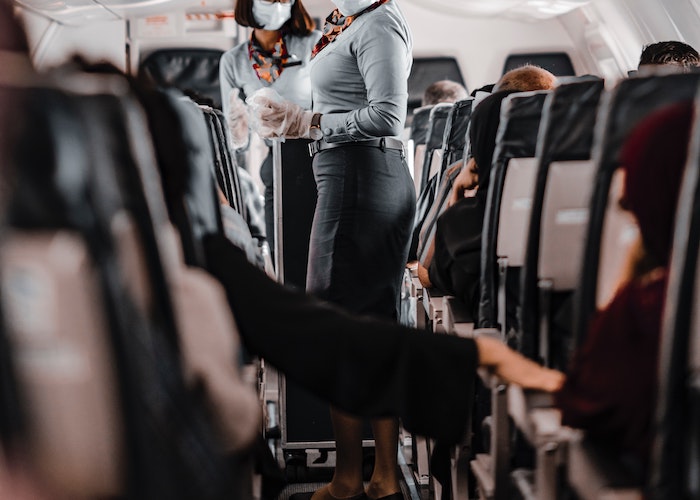Living Abroad Without Going Broke: Istanbul

Each week, TFD is taking an in-depth look at the cost of living in other countries, to learn how people like us are able to fund their worldwide dreams. Moving abroad is something many of us regard as an unattainable goal, but it shouldn’t be reserved solely for people who don’t have to worry about money. We have an incredible lineup of people who have moved to every corner of the globe, and are more than willing to explain what their expenses are, and what it took to take the plunge and move abroad. If you live abroad, or have lived abroad recently, and would like to participate in this exploration, email maya@thefinancialdiet.com.
Last week, we explored Spain. This week, “foreign correspondent” Bermet Mambetshaeva, who is originally from Kyrgyzstan, and moved to Istanbul two years ago, answered the following 10 questions:
1. What city do you live in, and when did you move there?
In summer 2013, I quit my office job and closed a small business, and moved to Istanbul. At first, it was more of an adventure for me because I didn’t plan to stay here for long. I left Istanbul in June and having spent six weeks in summer school in Norway, decided to return. In 2014, I started my master’s at Istanbul University.
2. What do you do for a living abroad?
I make my living by working part-time for a logistics company. I translate from English and Russian, write emails, and make calls abroad to partnering companies and clients. Also, like many foreigners in Istanbul, as a side job, I tutor students taking the IELTS and TOEFL tests.
3. How exactly did you get that job, and how were you able to fund your move?
When I came to Istanbul, I lived off of my savings for a little while — and my savings was also how I funded my move. I applied to a few companies and digital agencies through Kariyer.net and LinkedIn, but work in PR or corporate communications required fluency in Turkish, which I didn’t have at that time. I found my current job (and extra side gigs) through acquaintances who provided me with contacts. Most foreigners I know here are English teachers, freelance journalists/editors, or consultants. There are also a bunch of expats I know who work in logistics, engineering, and aviation.
4. What are your monthly expenses?
Most foreigners live in shared apartments in central areas: Cihangir, Beyoglu, Besiktas or Kadikoy. On average, a room in these neighborhoods costs 800-1300 TL ($285 – $465) including utilities and 1,500 – 2,500 TL ($535 – $890) for one bedroom apartment or a studio. I chose Kadikoy because it’s more residential and not overly touristy, but it’s still a great, vibrant location. Living in its nicest part, Moda, costs me 1,300 TL (about $465) for a spacious room in a duplex with two flatmates. Utilities are included in rent, but in the winter each of us has to pay extra 200 TL for gas heating.
My pre-paid phone plan costs 25 TL/month ($9). Fortunately, I don’t have to commute to work every day, so my transportation expenses are less than 60 TL per month ($20).
Eating out in Istanbul or ordering online is inexpensive unless it’s non-Turkish food. Nevertheless, I try to keep my meal budget to a minimum, and I buy groceries at a local street market that offers a huge assortment of fresh fruit and vegetables. I spend about 30 TL ($10) per week on groceries. Food from around the world is not very popular in Istanbul, and is therefore pricey, so I can’t go to dinner at my favorite Chinese or Indian restaurants as often as I’d like to.
5. What do you like about the culture of your city, and what has made it easy to acclimate?
It was easy to stay in my room, and feel isolated by a new culture. But I’d say that exploring the city, and meeting people from different backgrounds, really helped me acclimate faster. I like that even after living here for two years I still find a lot of things to do that I haven’t tried yet. I always come across a new dish to try, or a new area to explore, or an art gallery to visit. In addition, there are a lot of fun groups to join in the city, based on shared interests, ranging from yoga to photography to running.
Getting around is fairly simple. Public transit is efficient enough, and in most cases I can easily get around the city without taxis. Istanbul is also a big international hub and with two big airports and several local airlines, some of which offer affordable tickets which allow me to travel every so often.
6. What is the biggest challenge your new culture presents? Did you experience “culture shock”?
The city is very crowded, and there are aspects that are very disorganized. Street harassment is one of the biggest issues discussed by women on Istanbul expat forums that I belong to. I also have had to deal with unwanted attention, and catcalling. I usually wear sunglasses and earphones if I don’t want strangers to disturb me. Sometimes if it’s really bad, I’ll even pretend I don’t understand Turkish.
7. What obstacles did you face when moving abroad, and how did you deal with them?
The biggest challenge for me was the language barrier. For the first time in my life, English wasn’t much of a help, especially when it came to Turkish bureaucracy. Even in the immigration office or banks I could hardly find anyone who spoke English. I took Turkish classes for nine months and now I’m quite comfortable with it.
I also felt very lonely because I didn’t have friends and actually knew very few people in Istanbul. Unlike in smaller cities, there are no particular “expat places” where all the foreigners usually hang out. So it took me some time and effort to build my social circle.
8. What advice do you have for someone looking to move to your city?
First, pick your neighborhood carefully. I prefer to pay a bit higher rent but live in a safe and cosmopolitan area. Next, learn some Turkish. It really makes life easier when you’re able to negotiate prices or call your Internet provider and actually speak the language. Finally, be patient. Things take more time to happen in Istanbul. You might hear from a plumber that he will come “around 11 AM,” and he will show up at 1 PM. You might have to wait three months for your residence permit to arrive. Two resources I find helpful are this Facebook group for expats, and the website Yabangee.
9. What was the process like for acquiring a visa before moving? How much did it cost?
As far as I know, anyone who enters Turkey as a tourist can stay for up to 90 days without a visa. Those who want to stay longer have to obtain residence permit. Here’s a comprehensive guide on how to get a first time residence permit according to the new law. I applied for the renewal of mine in September, as I’m staying here for another year, and was charged $80.
10. Are there certain expenses in your country that surprised you?
Cost of housing surprised me a little. Istanbul is one of the biggest and most densely populated cities in the world. Rent prices vary depending on many factors, such as neighborhood, proximity to public transportation, access to parks and the coastline, age of building, and facilities. There are ridiculously overpriced apartments in bad condition but in favorable areas. It’s very lucky to rent directly from the owner because then you only have to pay rent and a deposit. Real estate agents ask for a commission of 10-12% from the yearly contract. Thus, first month expenses for accommodations can be steep.
Bermet is working on her Master’s thesis and runs a blog. She is on Twitter.
Image via Flickr



